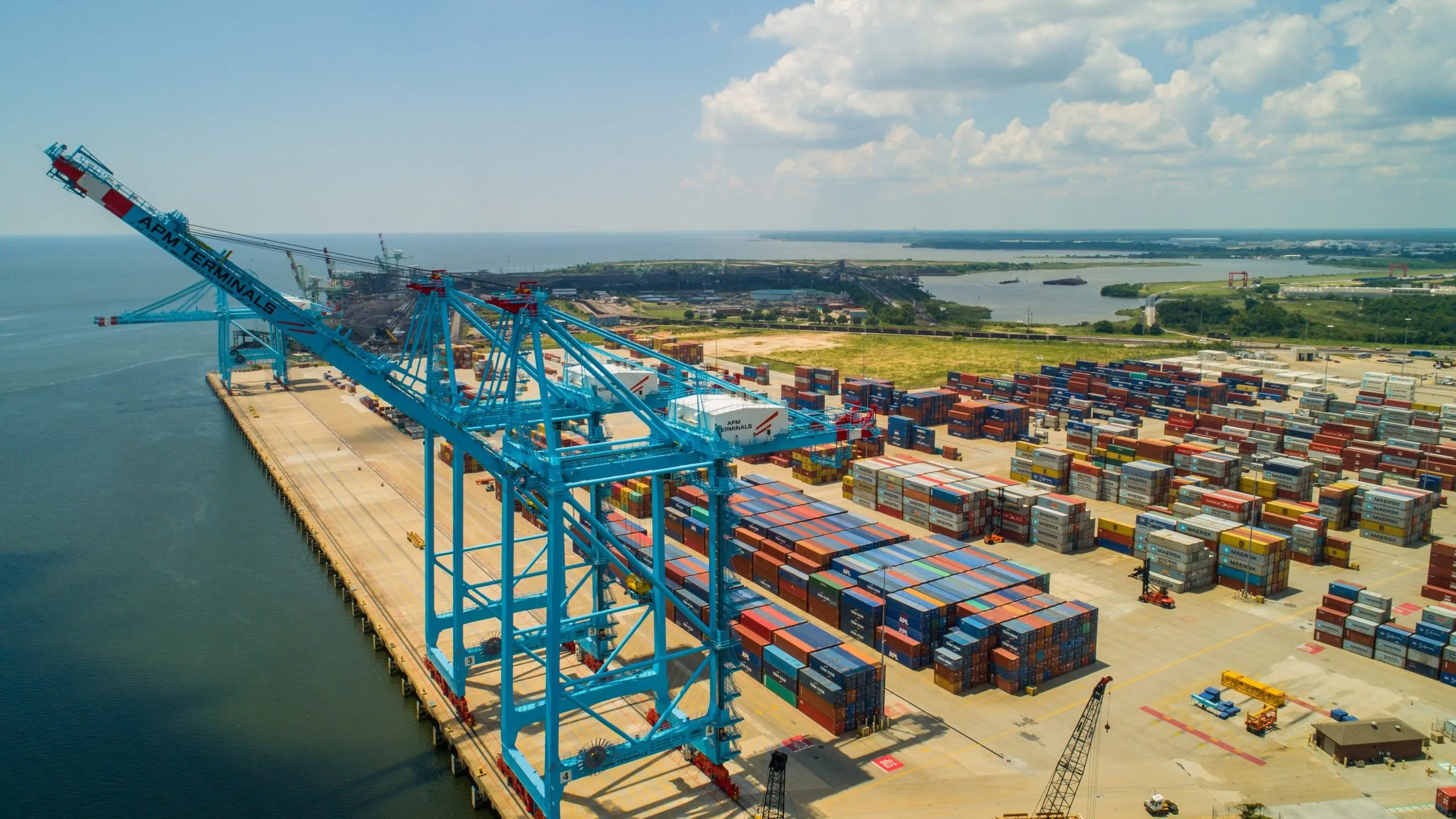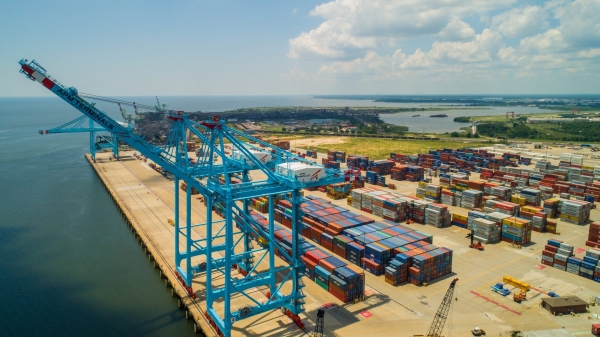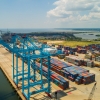|
Getting your Trinity Audio player ready...
|
A petition under consideration by the National Oceanic and Atmospheric Administration (NOAA) to protect the endangered Rice’s whales by limiting vessel activity passed its public comment period on July 6.
The petition — submitted by the Natural Resources Defense Council, Healthy Gulf, Center for Biological Diversity, Defenders of Wildlife, Earth justice, and the New England Aquarium — asks NOAA to impose a 10-knot speed limit and a shutdown of nighttime vessel traffic in the northern Gulf of Mexico.
De Soto Canyon, an area of the Gulf 60 miles off Alabama’s coast and Florida’s panhandle, is the core habitat of Rice’s whales, also known the Gulf of Mexico whale. An estimate of 2018 data suggested 51 individual whales remain in the Gulf, with abundance decreasing. After the 2010 Deepwater Horizon oil spill killed 17 percent of the Rice’s whale population, several external threats — oil, marine debris, and vessel strikes — have put the species at high risk of extinction.
The petitioners suggest vessel strikes could be reduced by imposing a 10-knot slowdown zone in waters from approximately Pensacola, Florida to Tampa, Florida. Since Rice’s whales are known to ascend to the upper 15 meters of the water column at night, the petitioners also suggest avoiding nighttime transit in the slowdown zone and maintaining a 500-meter distance from whales sighted.
The Alabama Port Authority objected to the petition. In comments sent on the last day of the period, they argue the measures are not clearly shown to reduce vessel strikes of Rice’s whales. The port operates 24/7, so a nighttime ban would double traffic during the day, and a speed limit would put more vessels in the bay for longer, putting the whales in more peril. Instead, they argue whale-avoidance technology, such as radar, should be investigated.
The Alabama Port Authority has been monitoring NOAA’s petition to restrict vessel operations in the Gulf for some time, and, as part of the rule-making process, they recently submitted comments for consideration by the agency.
“The maritime industry operates 24 hours a day, 7 days a week. As such, this restriction would have a detrimental impact on the Port’s operations,” Maggie Oliver, vice president of communications and federal affairs for the Port of Mobile, said. “The Alabama Port Authority is proud to be a fluid and reliable gateway for businesses statewide, and we are grateful for the work our elected officials are doing to protect one of Alabama’s most important economic assets.”
Rep. Chip Brown, R-Hollinger’s Island, who chairs the chairs the House Ports, Waterways & Intermodal Transit Committee, recently called out the petitioners as “far left environmental advocates” pushing “liberal extremism at its worst,” as reported by 1819 News.
“Alabama has spent millions of dollars to upgrade and improve our state docks and make them the finest facility on the Gulf coast, but now the federal government plans to forbid nighttime shipping operations because whales swim in the water,” Brown said. “Literally every moment of every day shipping operations are taking place at our state docks, and any pause hurts our state’s economy and adversely affects the job of every Alabamian who works in the industry.”
A 2021 analysis showed The Port of Mobile contributes $85 billion to the state’s economy. Of that $85 billion, $4.4 billion is direct business revenue generated from handling 41.7 million tons of cargo.
“The petitioner’s proposed restriction is inflexible and significantly underestimates the economic cost of any new regulations to maritime industries. With non-adaptive speed restrictions, a ban on nighttime operations, and overly broad habitat boundaries that are not based on a real-time understanding of the Rice’s whale presence in the Gulf, the proposed restrictions will demand significant changes to global trade and the supply chain, all of which will bear an economic cost to jobs and risk supply chain fluidity,” the Port of Alabama’s comments to NOAA read. “Enforcing vessel speed restrictions would inevitably lead to significant economic consequences.”






















































